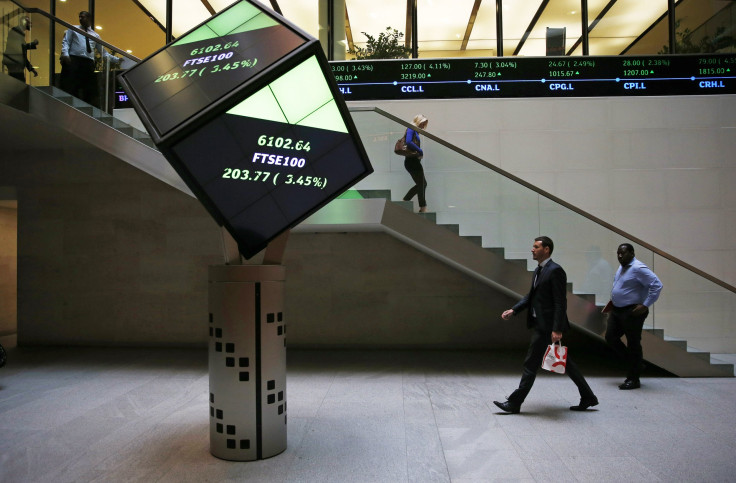World Stocks Hold Near One-Week Low

World stocks hovered just off one-week lows on Thursday, dragged down by an earlier 2 percent slump in Japan and lackluster European markets, while concerns over Britain's future in the EU continued to weigh on sterling.
Futures prices signaled a flat to weaker Wall Street open.
While European bourses inched into positive territory, gains were capped by investors' reluctance to take big positions before a meeting of the European Central Bank followed by a 1230 GMT press conference by ECB President Mario Draghi.
While the bank is not expected to announce any policy changes, it may raise growth and inflation forecasts, a rare positive step even as it emphasizes persistent negative risks.
However, political concerns such as Britain's Brexit vote are combining with persistent worries over the world economy to keep markets in a dour mood, especially after a series of disappointing manufacturing data in China and Europe this week.
"We are treading water at best these days, fighting the headwind of all sorts of nasties such as Brexit in the UK. We don't have a clear picture of where global growth is going to go - as some regions show signs of recovery, others drop away again," said Peter Lowman, CIO of Investment Quorum, a UK-based wealth manager.
In the United States, manufacturing grew for a third straight month in May, but factories appeared to be taking in fewer deliveries from suppliers, potentially hampering future production.
These figures along with other recent data has served to make markets more confident that the U.S. Federal reserve will hold back from a June rate rise.
That pushed the dollar further off two-month highs hit earlier this week against a basket of currencies while versus the yen the greenback hit two-week lows, falling half a percent.
The Japanese currency has been boosted by safety-seeking flows driven by Brexit worries, but also the government's decision to delay a sales tax hike due to the lackluster economy. But that dragged down the export-heavy equity index by 2.3 percent, its biggest one-day loss in a month.
MSCI's world equity index - a compilation of stocks from 45 countries - was flat .
Lowman said uncertainty over the recovery worldwide as well as in the United States could delay rate hikes even further to September.
"What (Federal Reserve Chair Janet) Yellen doesn't want to do is create a crash in financial assets and kill off what growth they have got," Lowman added.
Expectations the ECB will raise growth and inflation forecasts supported the euro on foreign exchange markets while the pan-European STOXX 600 and FTSEurofirst 300 indexes rose around 0.2 percent each.
There is also a chance the ECB will signal the return of a funding lifeline for Greek banks and those hopes helped the country's bond yields to hold near six-month lows hit last week.
Along with the ECB, an OPEC meeting in Vienna was also in focus. While the group is not expected to restrict crude output to support prices, outages in several countries helped support Brent futures just below $50 a barrel [O/R].
BREXIT WOES
British markets remained in thrall to the Brexit debate as the June 23 referendum on the UK's European Union membership approaches. While a YouGov poll published on Wednesday showed British voters evenly split between "Remain" and "Leave," two surveys the previous day showed a move toward leaving the EU.
Britain's hefty current account deficit - 7 percent of output in the last quarter of 2015 - makes the economy, and the currency, vulnerable to any pull-back in investment flows.
"I think currency is quite often the first place that investors vent their concerns. There's likely to be a quite rapid downward movement in sterling," said James Binny, Head of Currency, EMEA at State Street Global Advisors.
Sterling has lost more than 1 percent this week against the dollar and is currently at two-week lows while the cost of hedging against swings in the currency in options markets remains near seven-year highs.
Once the ECB is out of the way, attention will shift to the U.S. non-farm payrolls data on Friday, though private ADP jobs numbers due later on Thursday may also provide clues on the state of the world's biggest economy.
© Copyright Thomson Reuters {{Year}}. All rights reserved.




















